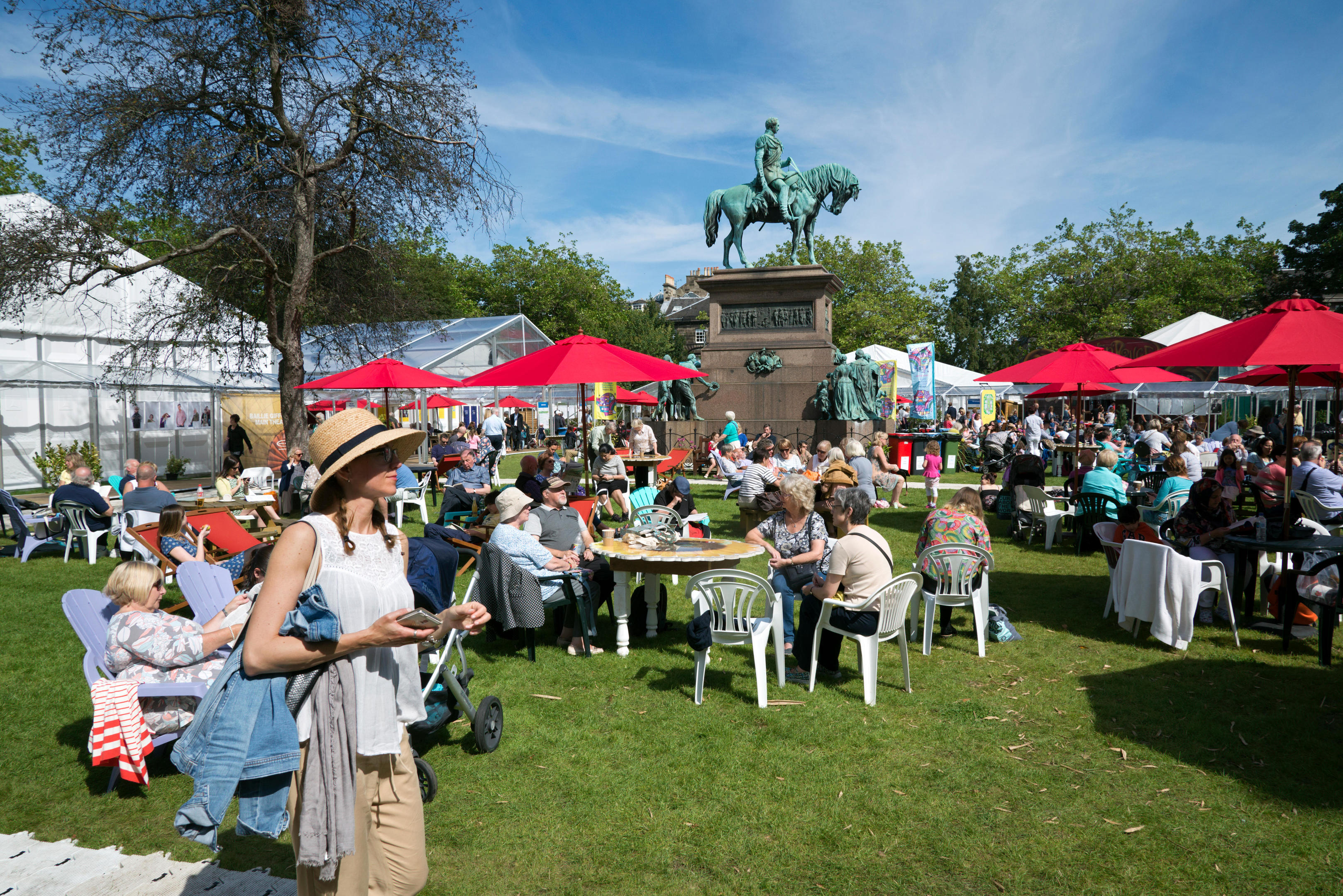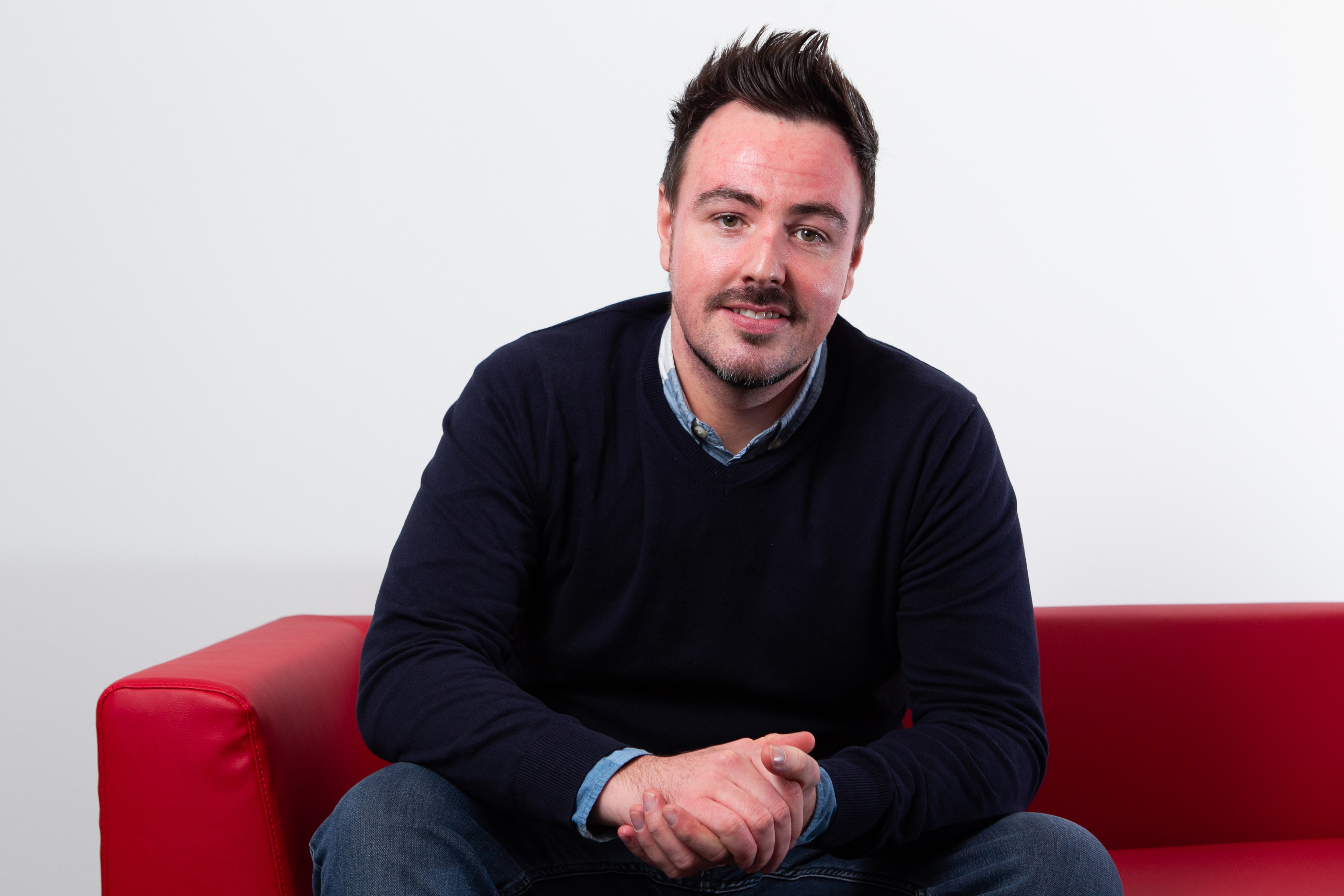
THE life of a children’s author can be strange at times.
At home, much of my time is spent in self-imposed solitary confinement, frittering away chunks of time, drinking impossible amounts of coffee and staring at pages, which should have many more words on them but, somehow, disappointingly, unexplainably, do not.
“Why is daddy grumpy again?” my daughters will ask.
“Well, he’s writing. It’s what he does,” my wife tells them with a sigh, as muffled sobs of frustration drift down from behind the closed door on the upstairs landing.
Scattered among these long, lonely hours, though, are sporadic bursts of colour and company. School visits, for example. Bookshop signings, for another, (if, that is, you are fortunate enough to have anyone turn up). But the highlight of my schedule, and that of any other authors I come across, is the literary festival.
Why? Well, there are the green rooms for a start. These are strange, self- contained little universes where the literary world’s biggest-hitters waft around dragging the rest of us into their orbits. Green rooms vary in scope and splendour. Edinburgh has its yurt (more on this later), Wigtown has the opulent lounge above The Book Shop with its deep armchairs and roaring fire. Whatever the setting, there is, almost always, some poor soul on deadline sweating over a laptop in the corner, fuelled on fear, caffeine and desperation.
Behind the scenes, the festivals are bursting with an eclectic mix of writers, television personalities, comedians, singers, playwrights, the list is endless. At the bigger events you may catch a glimpse of a David Attenborough or a Stephen Fry. But the real thrill is that authors, for the most part at least, are not instantly recognisable. You might love their books with a passion, have chunks of their peerless prose seared into your memory, but wouldn’t recognise them if they were next to you in the coffee queue.
This means you never quite know who the next conversation might be with, or where it may take you; I remember one lively, wine-coloured discussion with a world-respected economist who told me with great confidence that Trump would never make it to the White House and Brexit was never going to happen.
The rise and rise of literary festivals over the last decade has been phenomenal. When Cheltenham kicked things off in 1949, who could have predicted that today in the UK alone we’d have well over 300 festivals on the go? From Edinburgh to Hay-on-Wye, Wee Write to Wigtown, it seems that every corner of the country has its own celebration of the written word. There are festivals dedicated to fiction, poetry, children’s books (hurrah!), crime novels, fantasy, there is something for every genre, every kind of reader.
Because it is readers, not writers, who make these festivals so busy and so enjoyable. Readers, willing – or perhaps desperate – to get away for an hour or two from the pulsing glare of a digitally-saturated world and meet up with actual, flesh and blood people to discuss the latest Michael Chabon or Zadie Smith or Neil Gaiman. This break from the screen is something I feel is particularly important when it comes to our children. With two young daughters, I know how deeply the digital roots are stretching through our day-to-day lives. Everything is instant. Everything is now. Everything is gone in the blink of a screen.
So, it has become a source of amazement for me to turn up at festivals and discover audiences filled with children and parents and grandparents, all wanting a conversation about books and words and, whisper it, looking happy to be there.
Books are an escape, and it’s so vitally important in this all-consuming online world of ours to remind our children of this, of the joy of reading and the benefits it undoubtedly brings to a young life.
Like the books they celebrate, festivals can be joyful, intriguing, inspirational, entertaining, thought-provoking and, sometimes, infuriating. Sometimes they are all of these things in one morning. For a growing number of us, it seems, only one thing can match the joy of reading and that is the joy of talking about it.
There can also be no overlooking the financial benefits that a successful book festival can reap. Hay, Cheltenham and Edinburgh are the juggernauts, bringing millions of pounds in tourism to their towns. But, in Scotland, we have more than 50 festivals, from Shetland to Dumfries and all points in between. Some of the biggest will have full-time organisers, others rely on the unstinting enthusiasm of volunteers. One of my favourites, Wigtown, has been hailed for turning around the fortunes of a town.
I’ve had the pleasure of speaking on a number of occasions and am lucky enough to have made friends there. All of them tell stories of a fading town rejuvenated by the festival. Now it is a vibrant place, welcoming thousands of book lovers every year, to what is now the second biggest festival in Scotland after Edinburgh.
Ah, Edinburgh. Perhaps the most famous of them all. Without my invite to this most magical of festivals I might never have asked, “What on earth is an author’s yurt? Is it hygienic? Will I need cream from the doctor afterwards?”.
I’m ashamed to say I was forced to consult Google, and as I dug deeper my initial reaction of “Oh, it’s just a tent,” turned into bemusement and then something like enchantment.
Edinburgh Festival’s Authors’ Yurt, you see, has achieved a status bordering on mythical. The yurt encapsulates the fun and the peculiar kind of magic of literary festivals. Walking inside, you feel that you are entering another world. Here is a place where authors – usually solitary creatures – gather to converse, consult, congratulate and console.
They emerge from the closed door on the upstairs landing, and blinking in the light, the young and old, the men and women, are revealed as a community, a binding of readers, of writers, and of book lovers, every one.

Enjoy the convenience of having The Sunday Post delivered as a digital ePaper straight to your smartphone, tablet or computer.
Subscribe for only £5.49 a month and enjoy all the benefits of the printed paper as a digital replica.
Subscribe